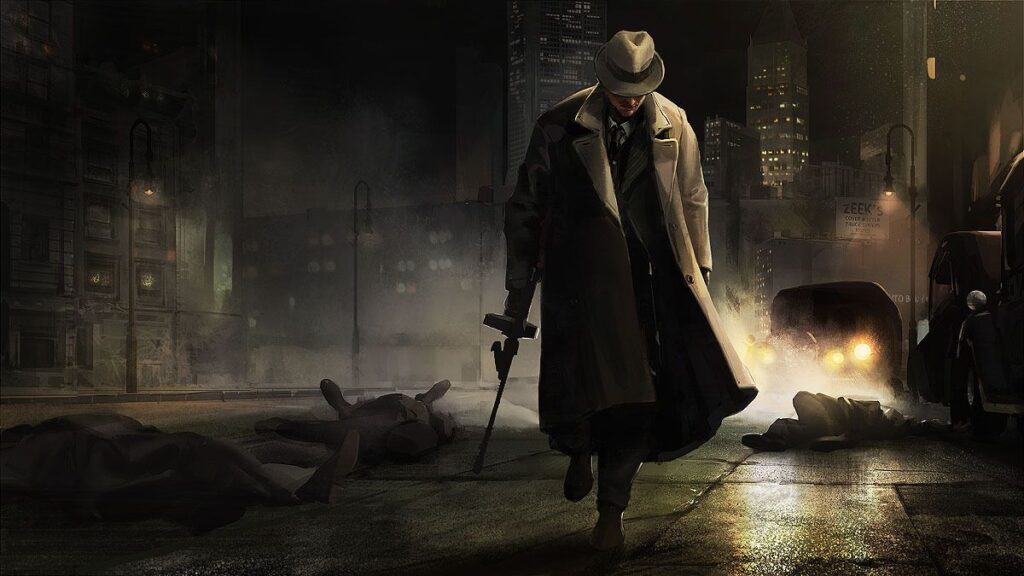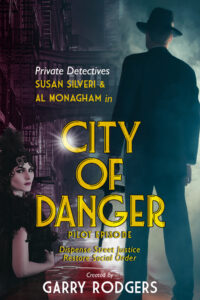Crime doesn’t pay, so they say. Well, whoever “they” are, they aren’t in touch with today’s entertainment market because crime—true and fiction—in books, television, film, or net-streaming, is a highly popular commodity. One solid crime writing sub-genre, detective fiction, is hot as a Mexican’s lunch.
Detective fiction has been hot for a long, long time. Crime writing historians give Edgar Allan Poe credit for siring the first modern detective story. Back in 1841, Poe penned Murders In The Rue Morgue (set in Paris), and it was a smash hit in Graham’s Magazine. Poe’s detective, C. Auguste Dupin, used an investigation style called “ratiocination” which means a process of exact thinking.
Poe’s style brought on the cozy mysteries, aka The Golden Era of Crime Fiction of the 1920s. Detectives like Sherlock Holmes and Miss Marple solved locked-room crimes. They intrigued readers but spared them gruesome details like extreme violence, hardcore sex, and graphic killings.
The golden crime-fiction genre evolved into the hardboiled detective fiction movement, circa 1930s-1950s. Crime writers like Dashiell Hammett gave us the Continental Op and Sam Spade. Raymond Chandler brought Philip Marlowe to life. Carroll John Daly convincingly conceived Race Williams. And Mickey Spillane, bless his multi-million-selling soul, left Mike Hammer as his legacy.

The ’60s to 2000s gave more great detective fiction stories. Anyone heard of Elmore Leonard? How about Sarah Paretsky and Sue Grafton? Or, in current times, Michael Connelly, Megan Abbott, and a wildcard in the hardboiled and noir department, Christa Faust?
These storytellers broke ground that’s still being tilled by great fictional detectives. Television gave us Perry Mason, Ironside, Columbo, Jack Friday, Kojack, and Magnum. Murder She Wrote? How cool was mystery writer and amateur detective Jessica Fletcher? And let’s not even get into big screen and the now runaway net-stream stuff.
So why the unending popularity of detective fiction? I asked myself this question to understand and appreciate the detective fiction part of the crime story genre. I worked as a real detective for decades, and I know what it’s like to stare down a barrel and scrape up a cold one. But once I reinvented myself as a crime writer, I had to learn a new trade.
 I’m on an even-newer venture right now, and that’s developing a net-streaming style series. It’s a different—but not too different—delve into hardboiled detective fiction, and the series is titled City Of Danger. To write this credibly, and with honor to heritage, I’ve plunged into a rabbit hole of research that’s becoming more like a badger den or a viper pit.
I’m on an even-newer venture right now, and that’s developing a net-streaming style series. It’s a different—but not too different—delve into hardboiled detective fiction, and the series is titled City Of Danger. To write this credibly, and with honor to heritage, I’ve plunged into a rabbit hole of research that’s becoming more like a badger den or a viper pit.
What I’m doing, as we “speak”, is learning this sub-genre of crime writing—hardboiled detective fiction—and I’ve learned two things. One, I found out I knew SFA almost nothing about this fascinating fictional world that’s entertained many millions of detective fiction fans for well over a hundred years. Two, detective fiction has far from gone away.
My take? Detective fiction—hardboiled, softboiled, over-easy, scrambled, or baked in a cake—is on the rise and will continue being a huge crime-paying moneymaker in coming years. There are reasons for that, why detective fiction remains so popular, and I think I’ve found some.
I stumbled on an interesting article at a site called Beemgee.com. Its title Why is Crime Fiction So Popular? caught my attention, so I copied and pasted it onto a Word.doc and dissected it. Here’s the nuts, bolts, and screws of what it says.
Crime fascinates people, and detectives (for the most part) work on solving crimes. But the crime genre popularity has little to do with the crime, per se. It has far more to do with the very essence of storytelling—people are hardwired to listen to stories, especially crime stories.
Detective fiction is premiere crime storytelling and clearly exhibits one of the fundamental rules of storytelling: cause and effect. In detective fiction, every scene must be justified—each plot event must have a raison d’etre within the story because the reader perceives every scene as the potential cause of a forthcoming effect.
 Picture a Roman arch bridge. Every stone is held in place by its neighbor just like story archs with properly set scenes. Take away one scene that doesn’t support the story arch and the structure fails.
Picture a Roman arch bridge. Every stone is held in place by its neighbor just like story archs with properly set scenes. Take away one scene that doesn’t support the story arch and the structure fails.
Well-written detective fiction has a bridge-like structure. Each scene in the storytelling trip has some sort of a cause that creates an effect. This subliminal action keeps readers turning pages.
The article drills into detective fiction cause and effect. It rightly says the universe has a law of cause and effect but we, as humans, can’t really see it in action. But we’re programmed to know it exists, so we naturally seek an agency—the active cause of any actions we perceive.
Detective fiction stories, like most storytelling types, provide a safety mechanism. A detective story is built around solving a crime by following clues. A cause. An effect. A cause. An effect. The story goes on until you find out whodunit and a well-told story leaves you with a satisfying end where you’ve picked up a take-away safety tip.
But detective fiction stories aren’t truly about whodunit. Sure, we want the crook caught and due justice served. However, we want to know something more. We want to know motive, and this is where the best detective fiction stories shine. They’re whydunnits.
Whydunnits are irresistible stories. They’re the search for truth, and in searching for truth in detective fiction storytelling—why this crime writing sub-genre remains so popular—I found another online article. Its title Why Is Detective Fiction So Popular? also caught my attention.

Cristelle Comby
This short piece is on a blog by Swiss crime writer, Cristelle Comby. If you haven’t heard of Cristelle, I recommend you check her out. Her post has a quote that sums up why detective fiction is so popular, and it’s far more eloquent than anything I can write. Here’s a snippet:
“Detective novels do not demand emotional or intellectual involvement; they do not arouse one’s political opinions or exhaust one by its philosophical queries which may lead the reader towards self-analysis and exploration. They, at best, require a sense of vicarious participation and this is easy to give. Most readers identify themselves with the hero and share his adventures and sense of discovery.
The concept of a hero in a detective story is different from that of a hero in any other kind of fictional work. A hero in a novel is the protagonist; things happen to him. His character grows or develops and it is his relationship to others which is important. In a detective story, there is no place for a hero of this kind. The person who is important is the detective and it is the way he fits the pieces of the puzzle together which arouses interest. Thus in a detective story it is the narration and the events which are overwhelmingly important, the growth of character is immaterial. What the detective story has to offer is suspense. It satisfies the most primitive element responsible for the development of story-telling, the element of curiosity, the desire to know why and how.
Detective stories offer suspense, a sense of vicarious satisfaction, and they also offer escape from the fears and worries and the stress and strain of everyday life. Many people who would rather stay away from intellectually ‘heavy’ books find it hard to resist these. Detective fiction is so popular because the story moves with speed.”
As a former detective, and now someone who writes this stuff, I think detective fiction is so popular because readers can safely escape into a dark & dangerous world of wild causes and wild effects—full of fast-reading suspense—and they get powerful insight into what makes other people (like good guys and bad girls) tick. Detective fiction is crime that has paid, does pay, and always will pay. It’s just that popular.
Kill Zone readers and writers: If you’re into detective fiction, what do you think makes it popular? And if you’re not into the genre, what makes you dislike it? Don’t be shy about commenting one way or another!
——
 Garry Rodgers is a retired homicide detective and coroner with over thirty years experience in human death investigation. Now, Garry has reinvented himself as a crime writer with his latest venture into a hardboiled detective fiction series called City Of Danger. Here’s the logline:
Garry Rodgers is a retired homicide detective and coroner with over thirty years experience in human death investigation. Now, Garry has reinvented himself as a crime writer with his latest venture into a hardboiled detective fiction series called City Of Danger. Here’s the logline:
A modern city in dystopian crisis enlists two private detectives from its utopian past to dispense street justice and restore social order.
Follow Garry Rodgers on Twitter and visit his website at DyingWords.net.
